Interview: Young cycling superstar Pfeiffer Georgi on overcoming a broken spine to become British champion
and live on Freeview channel 276
A year can be a long time in any sport but particularly cycling - just ask British national road champion Pfeiffer Georgi.
At the end of 2020, the talented young cyclist was in a neck brace, having broken two vertebrae in her spine and suffering from a serious concussion after two bad crashes.
Advertisement
Hide AdAdvertisement
Hide AdYet less than 12 months later, Pfeiffer was donning the red white and blue kit of British national champion, after winning solo just a few days after her 21st birthday.
But after her bad injuries, just racing again was difficult for the London-born cyclist, and she admits she struggled with the mental side of returning to the large group in races, known as the peloton.
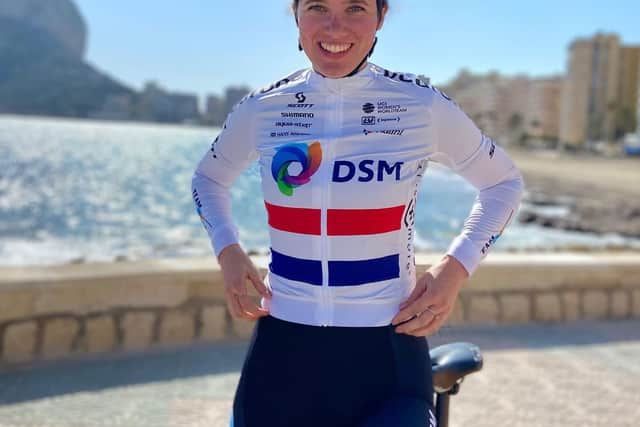

“They [the injuries] knocked be back a bit, but more it was the mental side of getting back into the peloton,” she tells LondonWorld.
“When things were getting a bit hectic, I would have a fear of crashing again.
Advertisement
Hide AdAdvertisement
Hide Ad“When you do have these bad crashes you think of the worst case scenario.
“But I did a lot of work with a mental coach about visualisation, ways to relax and feeling more confident.
“This year when I’ve crashed it hasn’t had such a big impact.
“But I wouldn’t have thought a year ago, that I would be winning the nationals after the crashes.”
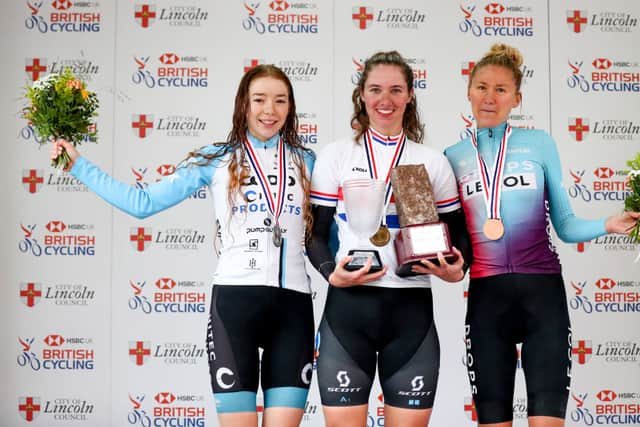

Advertisement
Hide AdAdvertisement
Hide AdIt might appear as if Pfeiffer - who is speaking about all this and more at the Cycle Show in Alexandra Palace this weekend - was destined to be a professional cyclist.
She was born right next to the famous Herne Hill Velodrome, in south London, which hosted the 1948 London Olympics.
Pfeiffer first cycled at the historic track aged just four.
“Mr parents took me down to Herne Hill Velodrome and got me on a bike,” she tells LondonWorld smiling.
Her dad Peter used to race for Great Britain, and after the family moved to Gloucestershire Pfeiffer and her brother started racing on the local motor racing circuit from the age of six.
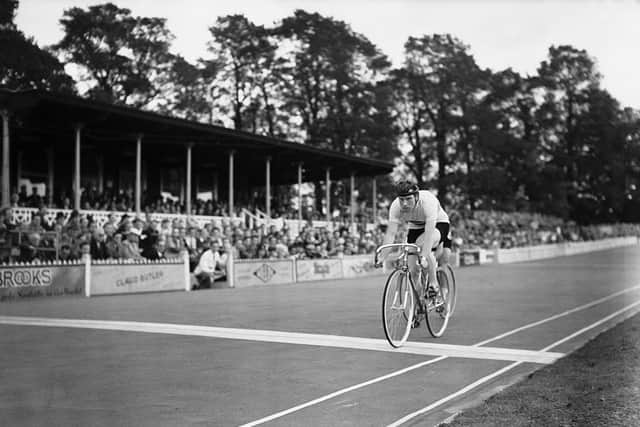

Advertisement
Hide AdAdvertisement
Hide Ad“It was all just a bit of fun,” Pfeiffer explains, over video call from her Netherlands base.
“I remember my first one I was on, I think, a mountain bike.
“And one time I wore like pink crocs because I forgot my shoes.”
By the age of 12, Pfeiffer was racing on the track and also on the road.
Advertisement
Hide AdAdvertisement
Hide AdDespite clearly having talent from an early age, Pfeiffer admits she didn’t actually think cycling was something she could do professionally.
“I wasn’t that great when I was younger,” she laughs.
“I always love it, but I didn’t really think it was going to be my job - I though it was going to be a hobby.
“Then between 14 and 16, I started to be a bit more competitive at national and international level.
“So then I hoped that it would be something I could do as a job.”
Advertisement
Hide AdAdvertisement
Hide AdAged just 17, Pfeiffer won the junior Ghent Wevelgem in Belgium, one of the most prestigious races on the men’s and women’s calendar.
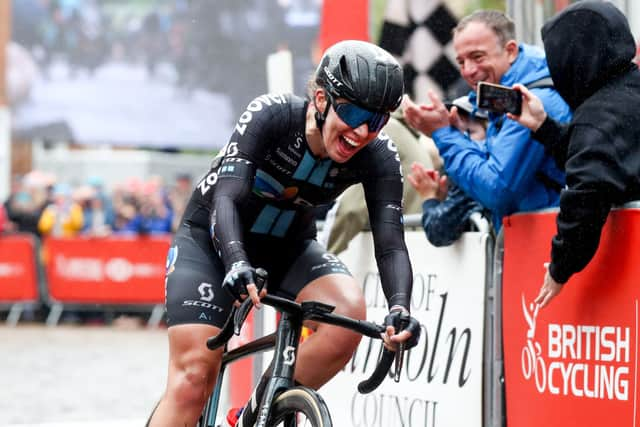

After that she began speaking to Team Sunweb, which has since become Team DSM who she currently rides for in the Women’s World Tour.
But Pfeiffer - who has already had a successful career aged just 21 - admits that the jump to professional cycling was big.
“I know for me that I found physically it was a pretty big step,” she says.
Advertisement
Hide AdAdvertisement
Hide Ad“And I was really lucky to have the support from the team to see where I could go.
“I was lucky to have their belief in me, that they saw my potential and weren’t trying to rush my progression.”
Pfeiffer also explains how daunting it was riding amongst her heroes - such as British Olympic medallist and world champion Lizzie Deignan.
“The first year I was just star struck riding next to Lizzie and [Marianne] Vos, because they were two of my idols growing up,” Pfeiffer says.
“As the years progress and you find your place a bit more.”
Advertisement
Hide AdAdvertisement
Hide AdAnd last year’s British National Championships victory is her biggest to date.
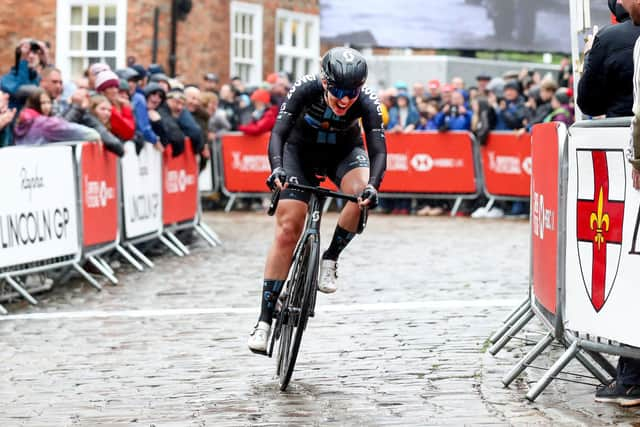

Speaking about wearing the British champions jersey, she said: “It gives you that extra confidence that you do have your place in the peloton and you are good enough.
“I feel like everyone doubts themselves a bit so it’s nice to have a reminder of what I did.”
This year, Pfeiffer has had a successful spring classics campaign - which include the most prestigious one-day races in the cycling calendar - including finishing 4th at Dwars door Vlaanderen and 9th at Paris-Roubaix.
Advertisement
Hide AdAdvertisement
Hide AdAnd she’s hoping to earn a place at the Tour de France Femmes, which at eight days will be the longest women’s Tour de France event yet.
“The final roster hasn’t been announced, but it would be something that I really love to do,” she says.
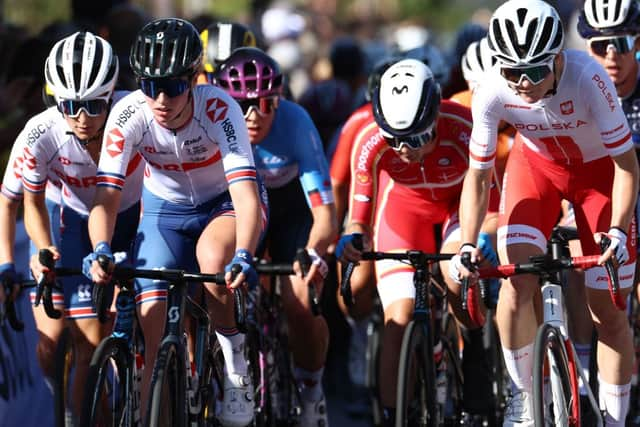

And Pfeiffer has a strong opinion that cycling infrastructure - such as low-traffic neighbourhoods - will over time encourage more Brits to get on bikes.
“I think it definitely comes down to the infrastructure,” she tells LondonWorld.
Advertisement
Hide AdAdvertisement
Hide Ad“Most of my season I’m in Holland and I don’t have a car here, all I have is my city bike.
“And it’s flooded with bike parks everywhere - so it’s easy and safe.
“I can just get my bike and go to the shops.
“My bike is not just my job, it’s my main mode of transport when I’m here.
“It also comes down to feeling safe, I know in the UK we don’t have a lot of these bike paths - it’s nothing like over here.
Advertisement
Hide AdAdvertisement
Hide Ad“It speaks for itself, that the infrastructure and the safety aspect work.”
As well as Pfeiffer, Lizzie Deignan and David Millar are speaking over the weekend.
